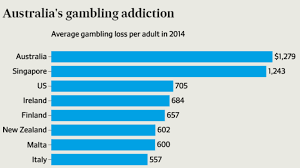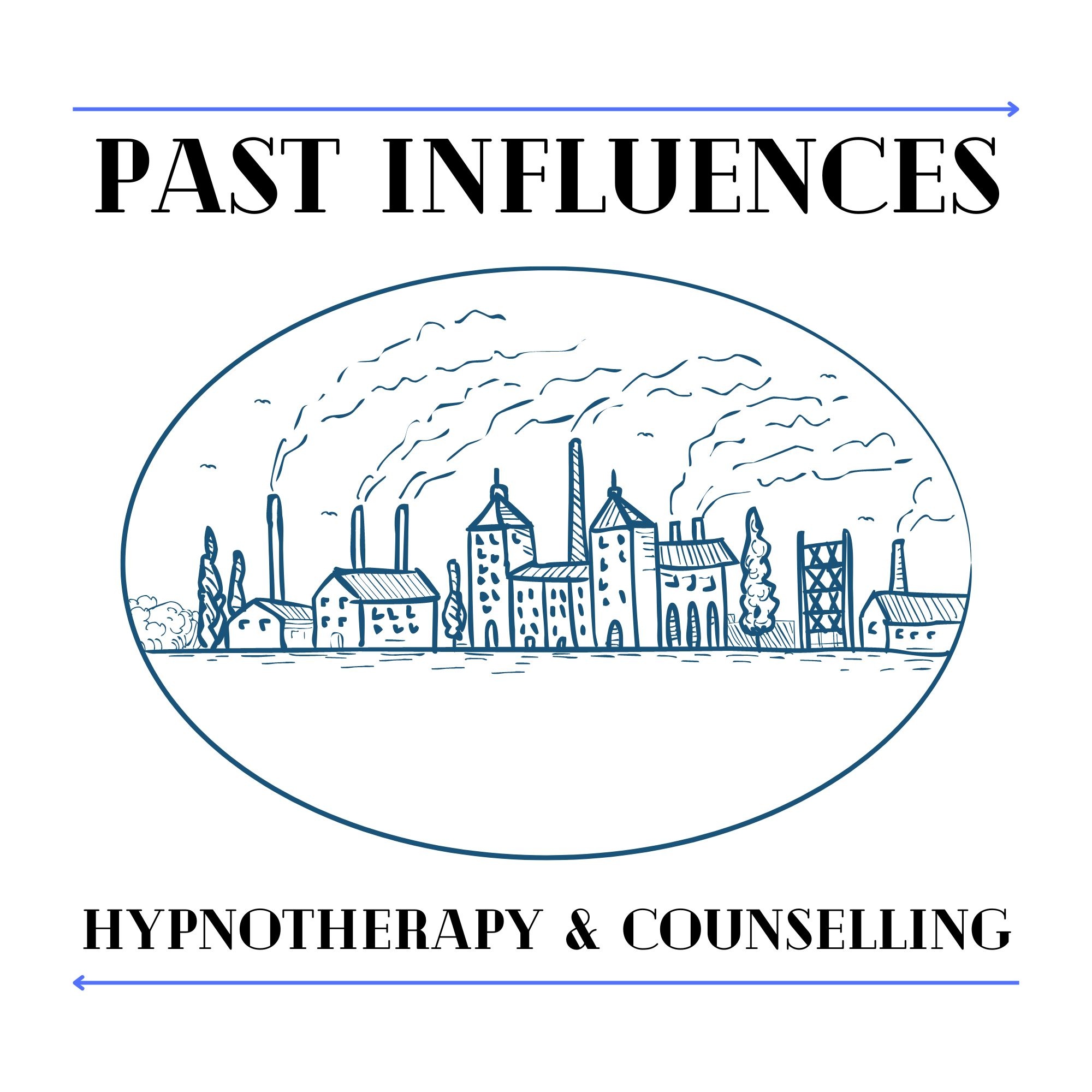Treating gambling addiction with hypnotherapy and/or counselling

At an individual level, if you have come this far and are reading this, then there is definitely a great deal of hope for you. Within my practice I can use a combination of counselling and hypnotherapy to help get to the root cause of your desire to gamble, and put strategies in place to assist you. First and foremost of those strategies is uncovering the origin of your desire to gamble. In other words, what causes you to want to spend money in the hopes of winning more? Where is this desire coming from?
Gambling has been proven over and over again to only benefit those providing the service (e.g. agencies, bookmakers, poker machine operators, casinos, etc.). In the long run, the gambler always loses, and in the meantime, suffers heartache, loss, and above all separation from loved ones, friends, and a life that would otherwise be SO much more rewarding.
Let me help you solve your gambling problem.
Regards,
Scott
---------------------------------------------------------------------------------------------------------------------
Gambling Addiction in Australia
Australia has had the highest per capita gambling expenditure in the world for some time now. This trend defies attempts to curb it through regulation, education, and industry watchdog programs. (1) Approximately 1% of Australians meet the clinical definition for addiction to gambling, with an additional 4% at risk of receiving this diagnosis. (2) Addicted gamblers, along with those at risk of becoming so, often experience financial hardship in their day-to-day life as a result of their addiction. (3) Addicted gamblers often need to risk greater amounts to feel excitement. They also have irritability or restlessness when they try to stop. (4) Gambling addiction can cause a range of problems: debt, relationship breakups, job losses, and mental health issues such as depression, stress and panic attacks. (3) This essay will examine the extent of the problem within Australia, including a discussion on attempts to curb its prevalence, within a public health context.
Definition and Extent of Gambling
The addicted gambler has a range of specific symptoms, as defined in the Diagnostic and Statistical Manual of Mental Disorders, Fifth Edition (DSM-V). They may experience an inability to control, cut back or stop their gambling. The may lie about the extent of their expenditure on gambling. They may lose or jeopardise their job, or their personal relationships. (2) Problem gambling, a softer term that has gained more widespread use, is pathological and is a form of addiction, where the person can’t control the urge to gamble. (4)
In Australia, at risk groups for problem gambling are quite specific. For example, one paper identified groups such as young adult males engaging in sports betting and middle-aged female Electronic Gaming Machine (EGM) players as some examples of high risk groups. (5) A longitudinal analysis recently found that gambling has actually increased in recent decades, mostly through sports betting and EGMs. (1) EGMs constituted 60% of the increase in net gambling revenue from $7bn in 1988-89 to $17bn in 2008-09 in Australia and as such are a significant contributor to the nation’s gambling problems. (6)
Reasons for, and Effects of, Gambling Addiction
Gambling can be a form of escapism; a way of internalising stress and anxiety, and this form of rationalisation can create or perpetuate the addiction. (7) Society also allows gambling, seeing it acceptable or even fun, which makes it harder for the addicted person to stop. (4) Recent studies have moved away from the perception of gambling addiction as a chronic, persistent condition. Social determinants are now considered as far more important in terms of precipitating or protecting against gambling addiction. (7)
EGMs in particular have been examined as to why they have proven addictive for so many people. Studies have been inconclusive, although they have suggested cognition problems with the gambler’s perceptions of their chances of winning. (8)
Problem gamblers have comorbidity – concurrent psychological conditions – in higher proportions when compared with non-problem gamblers. (2) Studies have determined that almost 50% of problem gamblers have comorbidity with personality disorders, the most common being antisocial or borderline personality disorders. (9) Most problem gamblers have other addictive tendencies such as for nicotine or other drugs and are also likely to have mood or anxiety disorders. This lends support to the notion that gambling addiction is a mental health condition and not a ‘lifestyle’ choice. (10)
Treatment, Government Policy and Public Health
Treatment services are available in Australia, such as the Gambling Helpline, but this requires motivation from the addicted gambler to identify that they have a problem. (11) Help-seeking intention rates are very low, making this a difficult mental health issue to treat from a public health perspective. (9) This situation is compounded by the prevailing view amongst mental health services that gambling addiction is a relatively rare condition. (9) To improve this situation, detection and treatment methods require enhancement. High comorbidity with other mental health disorders may permit additional screening for gambling addiction when treating or diagnosing the other psychological conditions. (10) Of the therapeutic approaches, cognitive behaviour therapy (CBT) has had success, along with motivational interviewing. (2) Financial counselling can also be beneficial. (4) Spending limits on EGMs have only had partial success, because problem gamblers, who tend to hide their addiction, are less likely to endorse or utilise them. (8) These are all primarily ‘downstream’ approaches, however, and what is lacking is a public health strategy aimed at stopping gambling addiction before it starts.
Governmental attempts at dealing with gambling addiction have had limited success. This is perhaps because of its paradoxical role of providing treatment services for problem gambling while at the same time allowing gambling options to be more widely available in Australia than ever before. (6) This situation continues to place individual groups at risk, especially men and those of lower socioeconomic status. (12) There is also some doubt as to the extent of the problem. A sweeping 2018 report commissioned by the Victorian Responsible Gaming Foundation has found that problem gambling is worse than some academic studies have suggested, especially among young people. (13)
Governmental inadequacy in dealing with problem gambling is illustrated by a recent report published by the Department of Social Services (DSS). The report deals primarily with the recent growth of online gambling, stating that off-shore gambling sites should be outlawed in Australia because of the lost tax revenue and the lack of consumer protections. (14) The report does not mention the individual financial and psychological costs of gambling addiction, nor does it refer to any current or proposed public health strategies.
A public health approach would enable prevention of gambling addiction, ‘upstream’ of the problem, rather than focussing on treating it after it has already manifested. (1) Variations in the cycle of problem gambling at the individual level means that public health intervention approaches have to be specific, considering localised and group context. (7, 15) EGMs in particular should be a principle target of public health campaigns, against the backdrop of industry and public opposition, who still do not see the harm in them. (6)
Concluding remarks
In summary, the problem of gambling addiction in Australia has not been tackled effectively thus far. Gambling expenditure has declined in some areas, such as lotteries and in casinos, but has increased in other areas, such as EGMs, sports betting and online wagering. Australia’s propensity to gamble more than any other nation on Earth requires more effective public health campaigns than have been presented thus far, along with a less liberalised gambling environment to help reduce the individual cost of gambling addiction.
References
1. Armstrong A, Thomas A, Abbott, M. Gambling participation, expenditure and risk of harm in Australia, 1997-1998 and 2010-2011. J Gambl Stud. 2017 Aug 24; 34 :255-274.
2. Thomas S. Problem gambling. Australian Family Physician. 2014 Jun 6; 43 (7) :362-364.
3. 6.8 Million Australians Gamble Regularly [Internet]. Australian Institute of Family Studies - Australian Government Media Release; 2017 Nov 23 [cited 2018 Aug 17]
4. Gambling addiction [Internet]. Health Direct; May 2018 [updated 2018 May 1; cited 2018 Aug 17]. Available from: https://www.healthdirect.gov.au/gambling-addiction.
5. Hing N, Russell A, Tolchard B, Nower L. Risk factors for gambling problems: An analysis by gender. J Gambl Stud. 2015 May 7; 32 :511-534.
6. Delfabbro P, King D. Gambling in Australia: Experiences, problems, research and policy. Addiction. 2012 Jan 10; 107 :1556-1561.
7. Scholes-Balog K, Hemphill S, Toumbourou J, Dowling N. Problem gambling patterns among Australian young adults: Associations with prospective risk and protective factors and adult adjustment outcomes. 2016 Jan 5; 55 :38-45.
8. Nower L, Blaszczynski A. Gambling motivations, money-limiting strategies, and precommitment preferences of problem versus non-problem gamblers. J Gambl Stud. 2010 Jan 19; 26 :361-372.
9. Rodda S, Manning V, Dowling N, Lee S, Lubman D. Barriers and facilitators of responding to problem gambling: Perspectives from Australian mental health services. J Gambl Stud. 2017 Sep 7; 34 :307-320.
10. Lorains F, Cowlishaw S, Thomas S. Prevalence of comorbid disorders in problem and pathological gambling: Systemic review and meta-analysis of population surveys. 2011 Jan 6; 106 (4) :490-498.
11. Problem gambling [Internet]. Lifeline [cited 2018 Aug 17]. Available from: https://www.lifeline.org.au/get-help/topics/problem-gambling.
12. Abbott M, Stone C, Billi R, Yeung K. Gambling and problem gambling in Victoria, Australia: Changes over 5 years. J Gambl Stud. 2015 Apr 21; 32 :47-78.
13. Howe P, Vargas-Saenz A, Hulbert C, Boldero J. Gambling and problem gambling in Victoria. July 2018. Victorian Responsible Gambling Foundation, Melbourne.
14. Gambling: Australian Government’s commitment to help problem gamblers [Internet]. Australian Government: Department of Social Services [updated: 2018 Mar 14; cited 2018 Aug 17]. Avaliable from: https://www.dss.gov.au/communities-and-vulnerable-people/programmes-services/gambling.
15. Marshall D. Gambling as a public health issue: The critical role of the local environment. Journal of Gambling Issues. 2009 Jun 1; 23 :66-80.
